Find the Others | Start A Conscious Change Collective
‘All of us are pretty good at carrying the secret of our own loneliness’ – Carl Rogers
Somewhere along the way, we lost touch with each other. After millions of years of evolution in tight knit tribal communities, in the blink of an historical eyelid we became a society of alienated hyper-individuals. In the words of Waldo Noesta ‘a society of hyper-individualists no longer functions like a single organism, but as an aggregate of parts each looking out for its own interests, cooperating only as they see fit as a means to their own private ends’. In other words, a society soon destined for decline, and the cracks are already showing.
From the increasing time we spend at work, to the hours spent navigating traffic in our burgeoning cities, we’ve engineered a system that literally drives us away from each other and towards an early grave.
But we weren’t always so alienated from each other, as Carl Sagan explains ‘most of human history was spent in hunter-gatherer communities. And in these kinds of communities today—there aren’t many of them—you find a degree of cooperativeness, an absence of alienation that is unheard of in modern society.
To ignore our social heredity is a serious mistake. There is a human capacity for good-natured cooperation that is simply not encouraged in modern society. That must change.
Time of Community: An Emergent Consensus
There is an emerging agreement among many philosophers, economists and social theorists that we need to embrace an entirely new narrative based on the overarching principle of compassionate togetherness and then reengineer our society from the ground up.
Here is just a small selection (in alphabetical order) of some of the many new narratives emerging:
The Commons Economy & P2P Culture – Michel Bauwens & The P2P Foundation
Communalism & Social Ecology – Murray Bookchin
The Transition Town Movement – founded by Rob Hopkins
The Emergence Of Regenerative Culture – Magenta Ceiba & The Bloom Network. As well as Daniel Christian Wahl
The Progressive International – Ada Colau, Bernie Sanders, Yanis Varakoulous & Cornel West.
The Reality of Interbeing – Thich Nhat Hanh & Charles Eisenstein
The Listening Society & Metamodernism – Hanzi Frienhachthe Great Turning – Joanna Macy
The New Human Rights Movement & The Resource Based Economy – Peter Joseph & TZM
A Politics Of Belonging – George Monbiot
The Web Of Meaning – Jeremy Lent
Local Futures: An Economics Of Happiness – Helena Norberg-Hodge
Earth Democracy & Seeding A Common Future – Vandana Shiva
The Extinction Rebellion & Climate Activists such as Greta Thunberg
While each of these narratives proposes a slightly different approach to reforming our social, economic and political systems, they all share a similar set of underlying values, and they each point towards a a future that is:
Regenerative
Collaborative
Community Based
Networked
Planetary In Scope
Interdependent
Empathic
Pluralist
Integrative
Anti Rivalrous
Participatory
Peer to Peer
Open Source
I like to think of this emerging vision for the future of our society as being a kind of Compassionate Global Village. And in the name of a healthy, diverse and yet philosophically aligned collection of new narratives that might help realise such a world, I’d now like to introduce one more, A Collective Blooming.
Collective Blooming: Towards the Compassionate Global Village
A Collective Blooming is a narrative that revolves around the cultivation of community. It envisions a planet wide network of peaceful, cooperative, decentralised, ecologically sustainable and socially just local communities blossoming together. Essentially a worldwide transition from the Corrosive, Hollow, Oppressive & Materialistic Plutocracy we have today, towards the Regenerative, Enlightened & Compassionate Global Village that is already starting to emerge in small pockets all over the world.
It’s an invitation for us to start co-creating the world we wish to live in, right here in the world we inhabit today. Admittedly, it’s a fairly idealistic vision. But as we find ourselves facing a number of existential crises, it seems we have no other choice but to remain focussed on the vision of a better world, and then keep moving towards it, one courageous step at a time.
In modern society the true value of community is often grossly underestimated. But in my experience, it’s one of the most powerful tools that we have, as in just a matter of months it can completely transform an individual’s life and empower them to become much more effective agents of change. But to access this transformational power we must first generate a new wave of mutual aid communities that are well-adapted to the 21st Century, that serve to connect, nurture, unite and inspire all those individuals with their sights firmly set on a better tomorrow.
Find the Others: Start A Collective
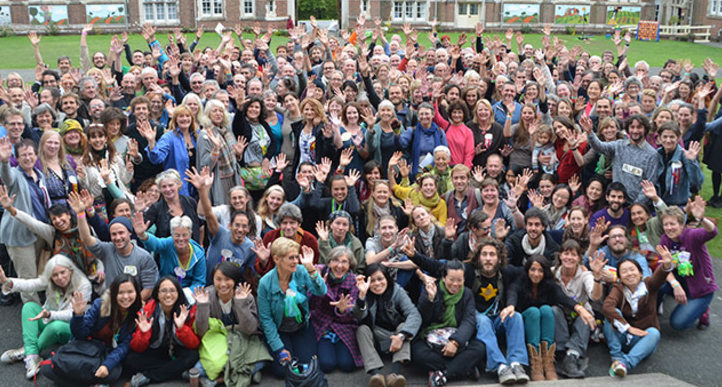
Conscious Change Collectives (which I’ll just refer to as Collectives from here on in) are a new form of mutual aid community, made up of anywhere between 15-250 people that all wish to share a deep sense of communal belonging with one another. The central idea is to form a trust network of relationships with a group of people that share the same core values, and then to cultivate as many opportunities as possible to share meaningful experiences with one another, to grow and evolve as individuals, and to work together to bring about radical and positive change across wider society. Collectives are designed to be incubators for the creation of a whole new type of regenerative culture. They are ‘Conscious’ because a central part of the experience is about becoming more consciously aware of how we relate to our ourselves and each other. And they are ‘Change’ focused in that beyond the experience of cultivating a deep sense of solidarity with one another, such communities are intended to help us actively transform our societal model.
In essence, Collectives provide us with a direct experience of just how nurturing it can be to co-create a thriving sense of community with a group of people with whom we feel we belong. They are intended to empower us to become more integrated versions of ourselves, whilst simultaneously increasing our effectiveness as agents of social change.
On a day-to-day basis this takes the form of a diverse group of people regularly partaking in a wide range of activities and experiences together. Such activities may include, but are by no means limited to:
Annual Gatherings & Retreats
Book Clubs, Study Groups & Philosophy Nights
Celebrations, Festivities & Parties
Circling Pods (A form of peer-to-peer group therapy)
Co-Working Sessions
Documentary & Movie Nights
Fundraising efforts for social and environmental causes
Goal Setting & Accountability Groups
Group Activism Work (Conservation, Social Justice, Animal Rights etc.)
Kids Activities – Playtimes, Adventures & Workshops
Life Drawing & Creative Arts Sessions
Musical Jam Nights, Dance Events & Performances
Open Mic Nights & Poetry Nights
Online Forums & Social Media Groups
Permaculture & Community Gardening Days
Personal Sustainability Audits & Challenges
Physical Training, Sports, Acrobatics & Treks
Plant Medicine Ceremonies & Breath work Sessions
Political Actions (Campaigning, Marches & Occupations)
Potluck Dinners & Shared Meals
Rewilding Practices
Skill Shares (Cooking, Gardening, Massage, Martial arts etc.)
Speakers & Group Discussion Nights
Social Enterprise Incubators
Womens & Mens Groups
Yoga & Meditation Sessions
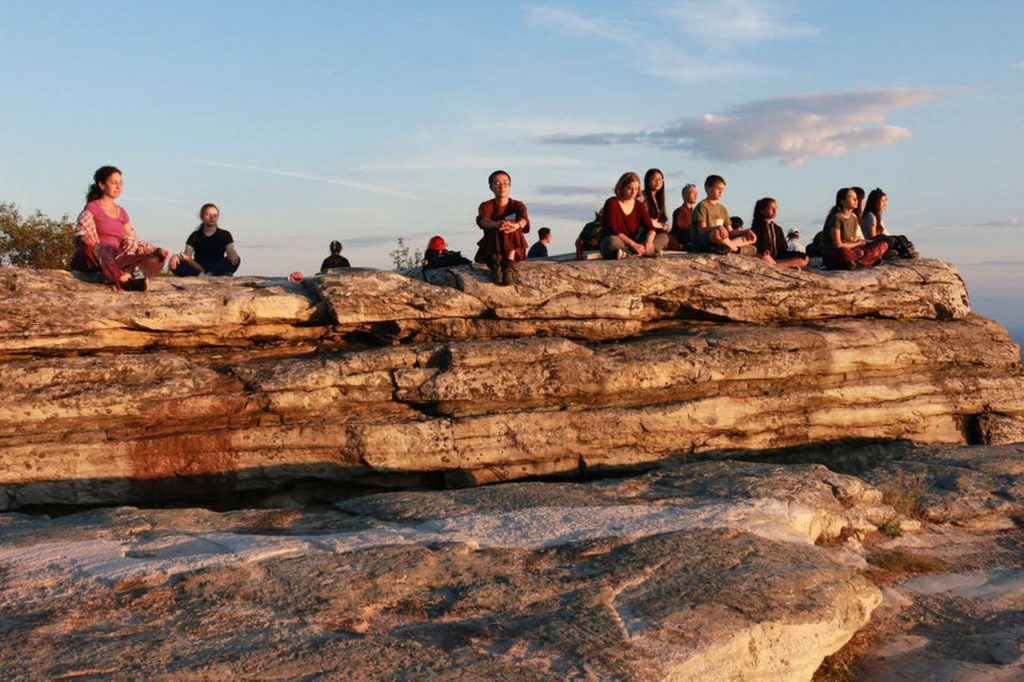
While these kinds of activities form the backbone of the Collective experience, participating in such a community is as much about being as it is about doing. As underneath the veneer of our increasingly technological lives, we remain social primates at heart, biologically and psychologically inclined to spend large amounts of time simply relishing in each other’s company.
And this is one of central aspects of the Collective experience, remembering how to become quietly and deeply comfortable in one another’s shared presence.
Gatherings and Pods
Two of the more central activities that allow us to do this, are the holding of Gatherings and the forming of Pods.
Gatherings are multi-day events that are held by a Collective around once or twice a year. They might best be described as part celebration, part conference and part retreat, and they are a chance for everyone in the community to come together and spend time exclusively in each other’s company. They help us to renew the bonds of understanding and belonging that bind our communities together and provide us with the opportunity to experience peak moments of connection with one another. They are also a way for new people to connect in with the culture of a Collective and decide if they would like to become more deeply involved.
Pods are small groups that form within a Collective in order to share in a particular type of experience together. They can be conducted in person or online and come in many shapes and sizes, but they tend to be most effective when they are made up of between 3-6 people. Depending upon the needs and wishes of the particular Pod, they can happen over a period of weeks, months or even go on indefinitely. They can take many different forms but here is a list of some of the more common examples:
Circling Pods – A form of peer to peer group therapy, where participants regularly come together to share about their inner experiences and gain a deeper understanding of each others internal worlds. Some of these Circling Pods may be open to all members of the Collective and others may be focused on certain demographics within the group, such as BIPOC or LGQBT+ folks.
Learning Pods – A group of people that come together to study a certain course, subject or approach to personal development.
Enterprise & Project Pods – A group of people that either directly undertake a new project or social enterprise together, or else support one other in kickstarting or further developing projects or businesses they are already running on their own.
Goals & Accountability Pod – A group of people that come together to set personal goals and then support each other to stay accountable in moving towards them.
Skill Share Pods – A group of people that take turns in teaching each other particular skills or expertise.
Activism Pods – A group of people dedicated to educating themselves and then taking action towards progressing a particular cause.
There are countless different ways that Pods of people can come together to support and empower each other, and the intimacy and depth they allow for is one of the backbones of the whole Collective experience.
Beyond the holding of Gatherings and the formation of Pods, there are two other central components which help to lay the foundations for a Collective to flourish. The first of those is an online platform where people in the community can stay connected and in touch with each other no matter where they are in the world. The right collection of online tools can empower a Collective to make more effective decisions as a group and allow all sorts creative and project-based collaboration to unfold. The final component is a physical space, or even a series of them, where people in the Collective can regularly meet up and partake in the various kinds of activities listed above. This can take the form of a co-working space, a cafe or even someone’s private home.
So, to recap, the minimum viable structure for a Collective to blossom includes:
- A group of people who all the share the same values as well as a desire to cultivate a strong sense of communal belonging together.
- The holding of annual in person Gatherings.
- An ongoing cycle of Pods.
- An online platform to connect and collaborate on and if possible, a physical space where everyone can regularly cross paths in person.
Beyond empowering us to transform our own individual lives, Collectives can also act as vehicles for us to reinvigorate and renew our political and economic systems. They provide us with a chance to experiment with new social technologies such as Sociocracy, Nonviolent Communication, Gift Economics and Restorative Justice. And by exposing us to new ways of peacefully organising ourselves, participating in Collectives can also empower us to become more politically effective citizens.
As Noam Chomsky put it:
“If a real democracy is going to thrive, if the real values that are deeply imbedded in human nature are going to flourish, and I think that’s necessary to save us if nothing else, I think its an absolute necessity that groups form, in which people can join together, can share their concerns, can articulate their ideas, can gain a response, can discover what they think, can discover what they believe, what their values are. This can’t be imposed on you from above, you have to discover it. By experiment, by effort, by trial, by application and so on, and this has to be done with others, furthermore central to human nature is a need to be engaged with others in cooperative efforts of solidarity and concern. That can only happen by definition through group structures… There are all kinds of ways in which people can associate with each other, and what I would like to see is a move towards a society which is really based on proliferating voluntary organisation, which eliminate as much as possible the structures of hierarchy and domination… (and for such voluntary organisations) to become the means by which we govern ourselves, by which we control our lives.”

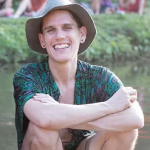
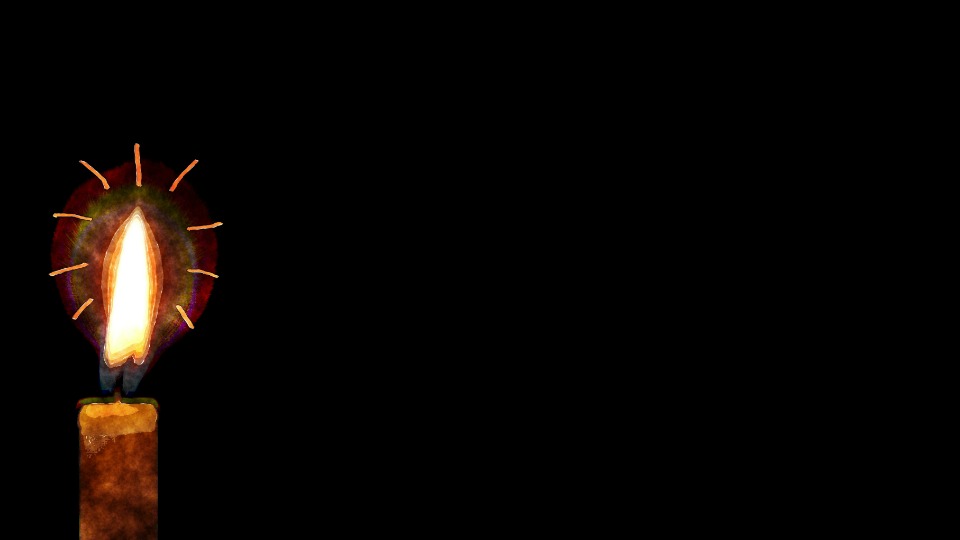

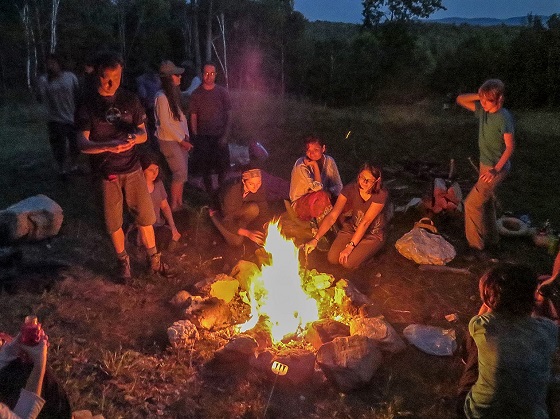
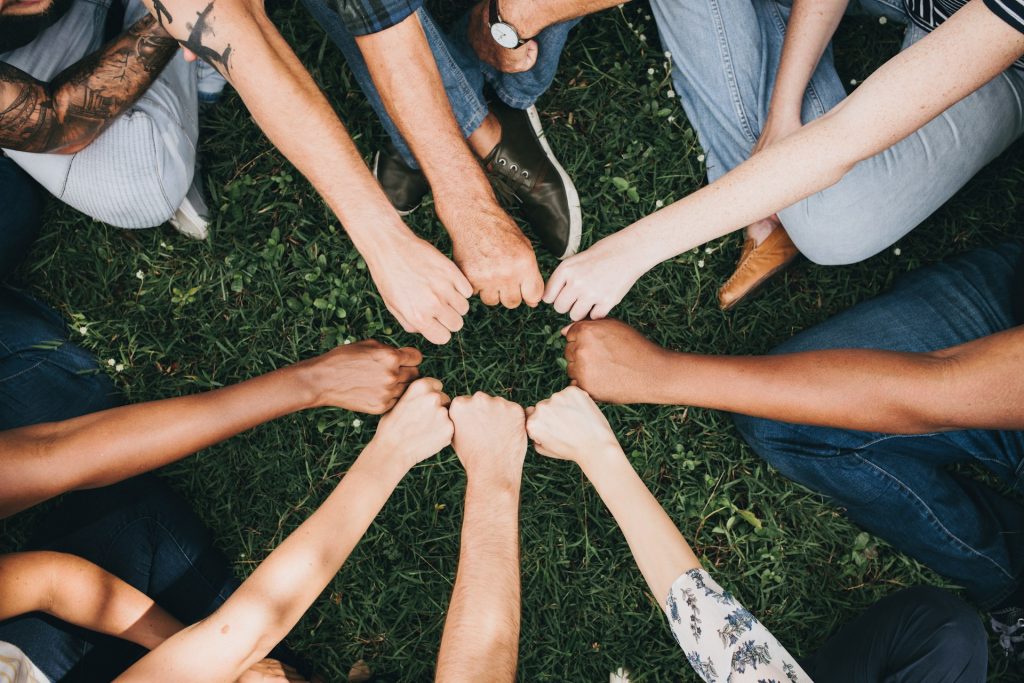
Joe, thanks for spelling out, creating lists, and articulating so clearly a sense I share with you, that for me is still finding form and language. Reading your words brings me not only into your community, but supports my own expression and cultivation of conscious community – in the many ways it can be expressed, and all the topics of importance we can embrace. We don’t need to invent it all from scratch, and we certainly are not meant to do this work alone. What we create must be done in connection. Thank you, Barbara